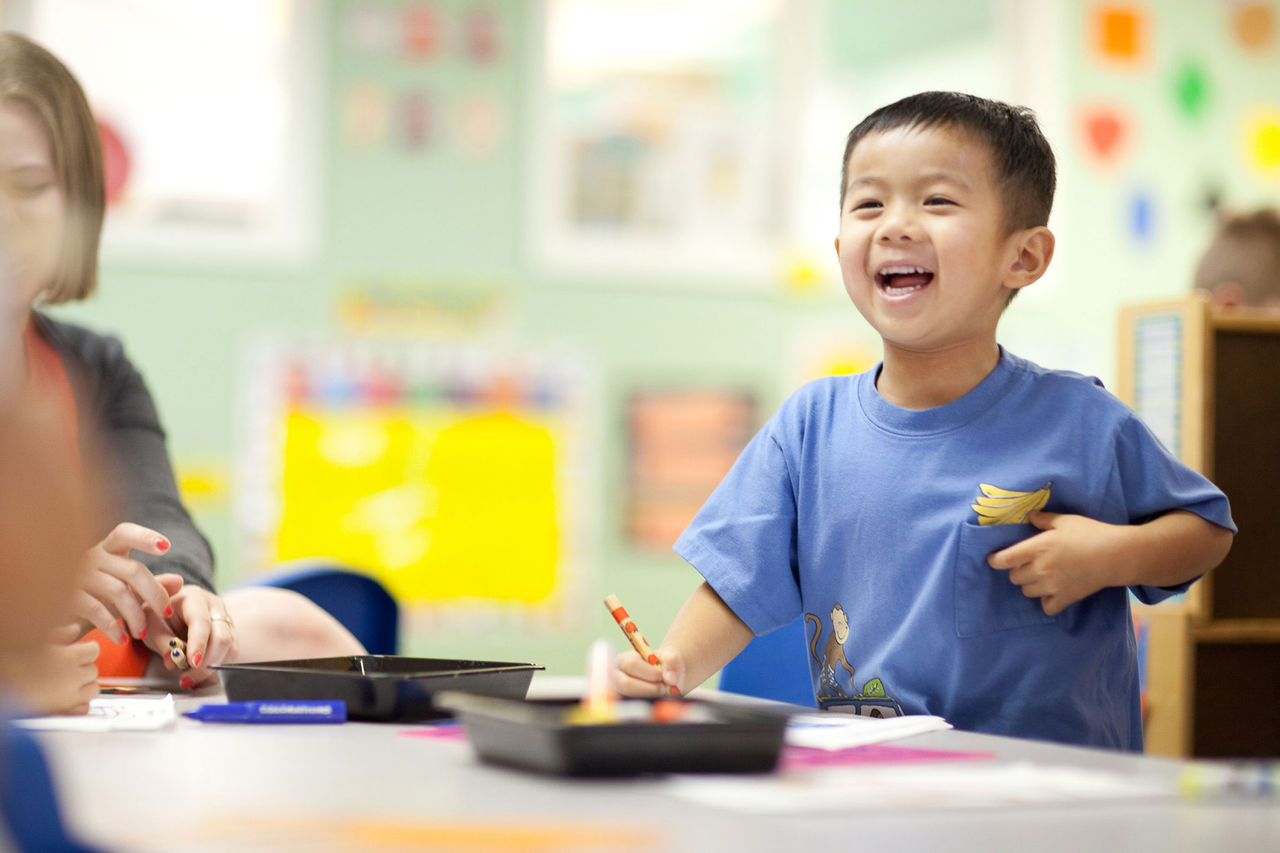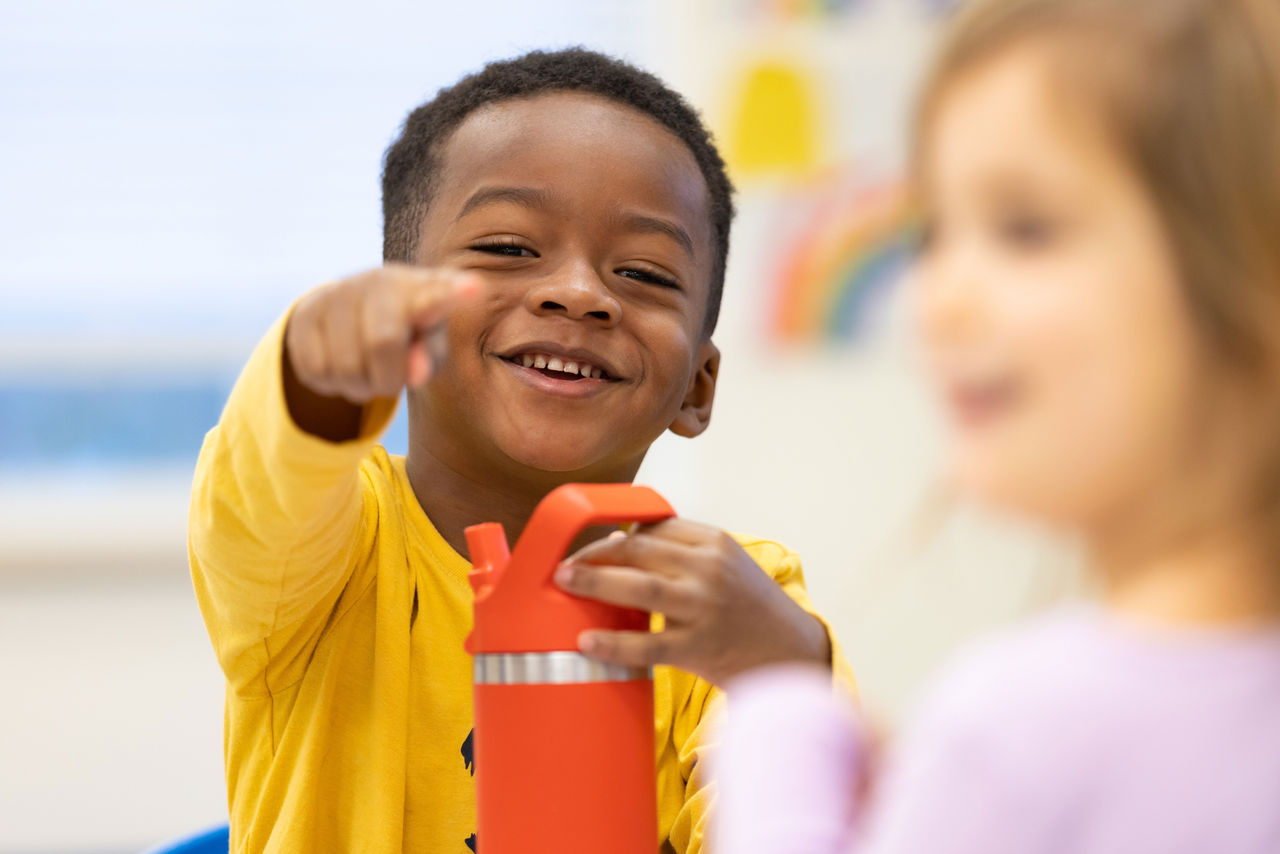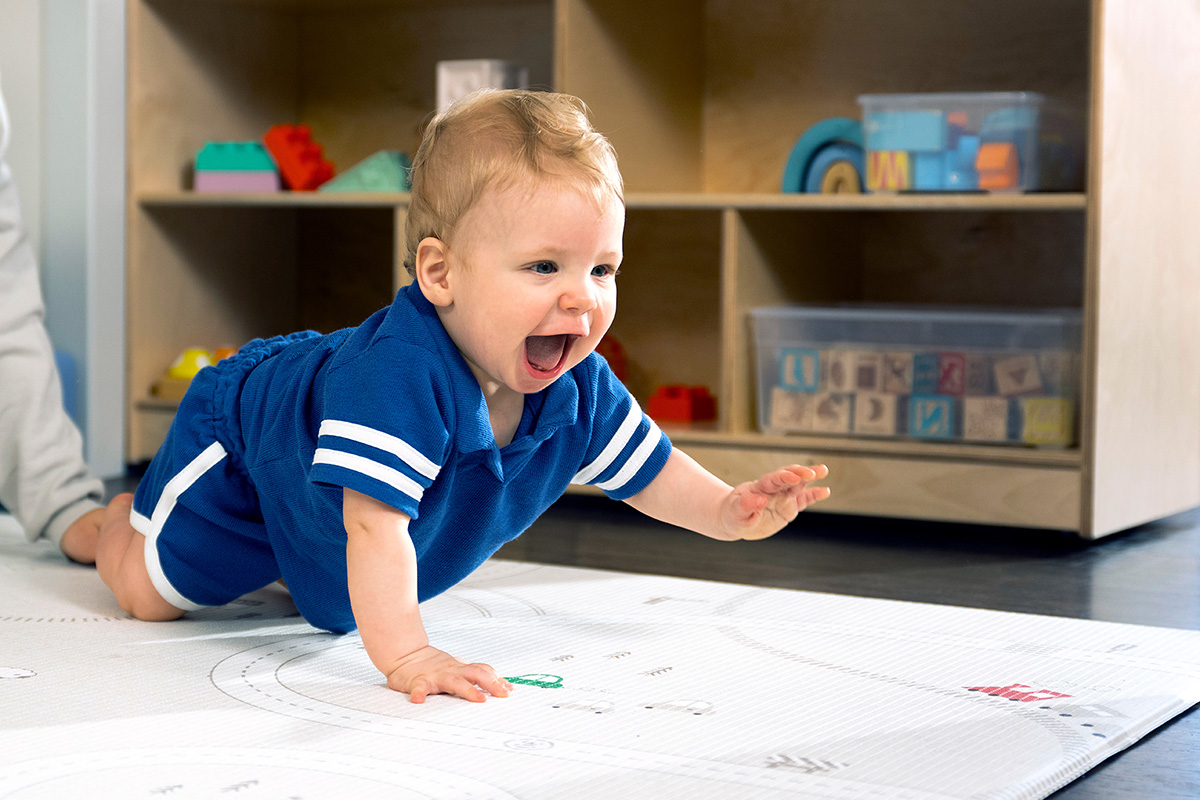Early childhood education is deeply important to a child’s overall development and long-term success, both socially and academically. It can be challenging for parents to determine the best time to start preschool because the right age for one child may not be right for another. Understanding the full scope of the preschool age range, requirements for preschool and some tips for helping your child prepare for school will ensure that they’re ready when the time comes.
Defining Preschool: An Overview of Early Childhood Education
Preschool and pre-k provide children with the foundational building blocks of early childhood education that will be applied throughout the rest of their lives. During preschool children learn the alphabet, how to count to ten, and — perhaps most importantly — how to play and interact with other children. All of these skills are vital to preparing a child for kindergarten.
The Benefits of Early Learning Experiences
When given the opportunity to have early learning experiences, children are:
- Developing crucial social-emotional skills.
- More independent.
- Accustomed to following instructions and daily routines.
- Confident.
Age Requirements for Preschool Admission
There is no exact age for when children are ready to start preschool. Some children are ready to start by the age of three, while others may need more time to prepare. Consider preschool like a developmental milestone similar to learning to walk or talk. Children who develop quickly may be ready by the age of three while others may be better suited to starting at four or in a half-day program.
Assessing Your Child’s Readiness for Preschool
Age is just one aspect of determining if your child is preschool ready. Consider the following criteria as a broad preschool assessment:
- Is your child potty trained? Can they wash their hands?
- Can your child put on their shoes and coat?
- Can your child follow simple instructions?
- Is your child comfortable transitioning between activities?
- Can your child be separate from you?
- Does your child interact well with other children?
Location, Schedule and Facilities: Practical Considerations in Preschool Selection
When choosing a preschool, there are several practical factors to consider. You may want to perform an online search for the “best preschools near me” to see which are most easily accessible. In addition to location, you’ll also want to consider:
- The schedule available for preschoolers and after school care for working parents.
- The facilities, including outdoor play areas.
- Any special programs offered by the school.
Transitioning to Preschool: Tips for a Smooth Start
Even if your child appears to be ready for preschool on paper, transitioning to preschool is still a big change that has the potential to be challenging. This can be doubly true if your child is not used to spending time away from you and other caregivers. Fortunately, a smooth start is possible with a little bit of preparation.
Preparing Your Child: Steps to Help Your Child Adjust to Preschool
Preschool preparation can ensure your child has a positive adjustment in their new environment. Help your child feel prepared by practicing the following:
- Transitioning from one activity to the next.
- Following simple instructions.
- Using proper hygiene, like washing hands.
- Geting dressed on their own, especially their shoes and a coat.
Building a Partnership with Preschool Teachers and Staff
The parent-teacher relationship is essential for your child’s success in school, and there are a number of steps you can take to build a strong partnership with your child’s preschool teachers and staff:
- Establish clear and open two-way communication. Share important details about your child as well as the best ways to connect with you, whether it is by phone, email or in person after school.
- Attend any relevant meetings and ask thoughtful questions.
- Collaborate regarding goals and expectations for your child’s learning.
- Work together to solve any issues that arise.
- Reach out early and check in often.
Dealing with Separation Anxiety and Stranger Anxiety
Children who have been in daycare are likely to have an easier time separating from their parents come preschool, but children who have been at home may experience separation anxiety. They may be fearful of separating from you for fear that you may not come back. Separation and stranger anxiety — the stress that comes from being left with strangers — can be remedied by leaving a child with a family member or close friend for short periods of time until they are more comfortable with being apart from their parents.
Setting the Foundation for a Lifelong Love of Learning in Preschool
No matter what age your child is ready to start preschool, the hours they spend in the classroom will lay the foundation for a lifelong love of learning. Early childhood education prepares children for kindergarten, and preschool learning is as important to social growth as it is to academic performance. As you prepare your child to embark on their preschool journey, remember that you are setting the stage for a bright and successful future.




